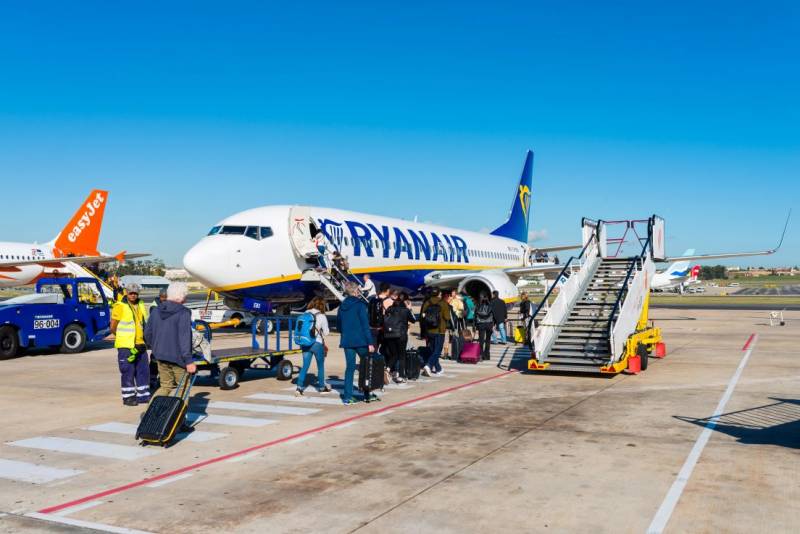Spanish News Today Editors Roundup Weekly Bulletin Nov 22
TOP STORIES: "Spain announces big changes to motorway driving from 2025" & "Murcia Airport teams up with Ryanair amid finances scandal"
Happy Go For A Ride Day, everybody! Celebrated annually on November 22, this day encourages people to get out into the world, whether by bike, car or aeroplane. It’s also part of the world Road Safety Week, so what better time for us to bring you news of upcoming changes to driving laws in Spain, and the last developments in the ongoing search to make Murcia’s airport great again – or greater than it already is, depending on your point of view.
Motorhead
So far, 2024 has been a fairly quiet year when it comes to the ever-changing traffic laws in Spain. But now, with just a few weeks left to go until the end of the year, the Directorate General of Traffic (DGT) has announced that some
big amendments are coming our way in 2025.
These changes, designed to enhance road safety during bad weather, traffic jams and emergency situations, will impact how we navigate Spain’s motorways.
Here’s a closer look at what drivers can expect next year:
New Rule #1: Driving during bad weather
Starting January 2025, a crucial update will be made to Article 31 of the General Traffic Regulations (RGC), which addresses driving in poor weather conditions like snow, ice or heavy rain.
Under the new rule, during adverse weather, motorists will be restricted to driving only in the right lane on motorways. Overtaking will be prohibited, allowing the left lane to remain clear for snowploughs, emergency vehicles and tow trucks to pass.
This rule is designed to keep the left lane unobstructed, ensuring that essential vehicles can operate efficiently during dangerous weather.
New Rule #2: Clearing the way for emergency vehicles in traffic jams
Next up is a key change aimed at improving response times during traffic congestion. From 2025, when traffic comes to a standstill on motorways and dual carriageways, drivers will be required to move to the far-left or far-right lanes, leaving the middle lane open for emergency vehicles to pass.
This central corridor must be kept clear to ensure that ambulances, fire trucks and other urgent responders can move freely through the gridlock.
New Rule #3: Motorcyclists
In a move welcomed by many motorcyclists, the DGT has announced that, starting in January, riders will be permitted to use the right-hand hard shoulder when caught in a traffic jam. There are, however, some important conditions to keep in mind:
Motorcyclists will be limited to a maximum speed of 30 km/h when using the hard shoulder.
They must also give priority to vehicles that are already allowed to use the shoulder, such as bicycles.
Training day
The saga never seems to end for poor old Corvera Airport… or not so old, and that’s part of the problem. We already know that, as one of Spain’s newer airports, this fledgling is struggling to find its wings and soar, but this week’s developments point to a reason why and a possible solution.
In what appears to be a bold new chapter in the life of the Region of Murcia International Airport, the facility has rolled out a rather creative incentive: a 50% refund on landing fees for training flights.
This generous rebate is part of a broader strategy to coax airlines into using Corvera’s airfield for training exercises. Apparently, the lure of sunny skies, decent facilities and, most crucially, a hefty discount was enough to hook Ryanair, the airline that never met a cost-cutting opportunity it didn’t like.
Since last week, the ‘Low fares airline’ (I wonder why they don’t call themselves that anymore) has been putting its Boeing 737s through their paces, performing landings, take-offs and approaches for hours on end.
The airport’s management company, Aena, is positively brimming with pride over this partnership, touting Murcia’s “excellent conditions” for such activities. What they really mean is that, if Ryanair gets a cut-rate playground for its pilots, the airport managers get to pad their otherwise lacklustre stats and coffers.
They have assured that the training flights will not impact passenger flights at all, and that they are being programmed at times and in airspace well away from the other planes taking off and landing at Corvera.
Aena is also keen to explore “new lines of business,” which presumably means they’re open to just about anything.
This sudden enthusiasm for training flights and other sources of income might have something to do with the airport’s less-than-stellar performance since opening in 2019. Despite the fanfare, Corvera has struggled to attract passengers or turn a profit, and the regional government’s finances have taken a nosedive trying to keep the place afloat.
To top it off, there seem to be questions over the construction and handling of the airport which have left the regional government decidedly in the red. Already, a failed 36.4-million-euro damages claim against the airport’s former operator, Aeromur, was tossed out of court on procedural grounds.
But now, nine years after an earlier investigation fizzled out, Murcia’s politicians have decided to rehash the airport’s woes in a
fresh parliamentary inquiry. Because nothing screams ‘good governance’ like belated finger-pointing.
This newly constituted commission aims to unpack the tangled mess of contracts, expenditures and legal missteps that have turned Corvera into what has politely been termed a ‘cautionary tale’. Others might call it a money pit.
The ruling Partido Popular (PP), notably, isn’t thrilled about this newfound enthusiasm for transparency, perhaps because the inquiry promises to unearth some uncomfortable truths about how 180 million euros of public funds got tied up in this aerial albatross.
Meanwhile, other political groups seem eager to shine a spotlight on every questionable decision and financial hiccup that have brought the airport to its current state of underachievement. Cue a solid dose of political back-biting.
In the meantime, while Ryanair keeps looping its Boeings around the skies and the parliamentary committees sharpen their pencils, the rest of us continue to try to lobby the airlines for a lifeline – a couple more flights for next summer, and maybe one more for the following winter. Just as a start. That can be our grain of sand in trying to make the Region of Murcia airport a success.
And if anyone has any other ‘lines of business’ they would like to suggest for the airport, answers can be sent on a postcard to Aena. Whether this latest scheme of being a glorified flight school for Ryanair pilots marks the start of a turnaround for Corvera or just more turbulence remains to be seen.
Murcia
The 10-metre-long, semi-rigid speedboat was being transported on the back of a trailer when it fell off and caused a 10-car pile-up that killed the two Brits in the car behind, as well as severely injuring another British passenger who was in the car with them and several other people in other cars.
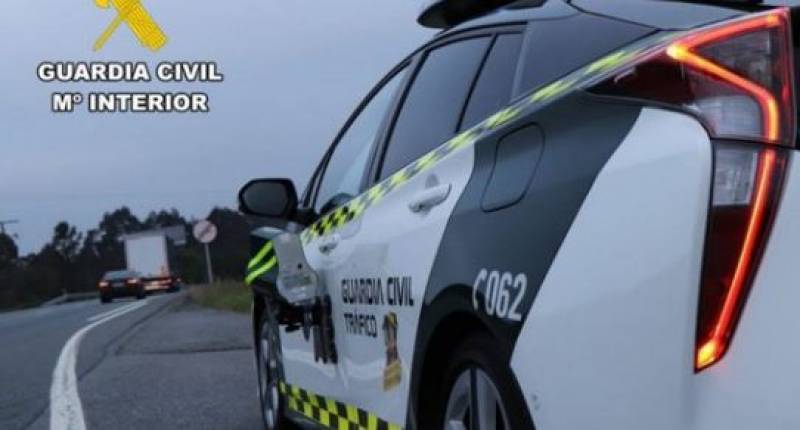
The boat, with its four high-powered engines, is suspected to be linked to drug trafficking. The 4x4 that was towing it sped away from the scene of the crime, and the Guardia Civil are now trying to
hunt it down using supermarket receipts found aboard the boat.
Just a couple of days later, a little way up the coast, Santiago de la Ribera witnessed its own criminal chaos when a
British man was shot and injured in what authorities suspect was a “settling of scores”.
The shooting happened while the 27-year-old was returning home in the evening with his wife, when they were ambushed by the gunman. The victim survived, though nursing bullet wounds to the knee and shoulder, and was transferred to La Virgen de la Arrixaca hospital in Murcia, where he is under 24-hour Guardia Civil protection.
Doctors now say he has been left paraplegic.
The hooded assailant, meanwhile, fled the scene. His getaway car was later found burnt out a few miles from there, in a tunnel on the AP-7 motorway. Another case for the Guardia Civil to investigate.
The history of property development on the La Manga strip goes back around 60 years, but if it were to be built today it would never get past the planning stage, of course. A thin strip of land flanked on both sides by large bodies of water, most of the buildings in La Manga del Mar Menor contravene current zoning laws that require structures to be a certain distance from the shore. When it comes to climate change and rising sea levels, this area was always going to be the first to cop it.
Optimistic scientists talk about emission reductions, while the pessimistic ones are already sketching out which sandy beaches will become coral reefs. The estimates range from minor permanent flooding with only a few hundred hectares of land lost in the next 30 years, to the worst-case scenario of nearly 1,800 hectares of Murcia being claimed by the sea. On the bright side, property with underwater views might become the hot new real estate trend. Start investing now.
If this 30-year aqua-pocalypse has you wanting to run for the hills, you can take one of
Ouigo’s 1-euro train tickets on its high-speed route to Madrid. The rail operator has a deal on tickets to the capital, going via Elche, for less than the price of a cup of café.
The deal went live earlier this week, and passengers scrambled so hard to buy tickets that Ouigo’s website went down for a time. Tickets normally start from a very reasonable 9 euros anyway, but it seems people were just too eager to make those 8-euro savings. Nominally, the offer is open until March 31 but don’t be surprised if all the tickets have been swept up by then.
Finally, Christmas is rushing up fast and will be upon us before we know it. I know, I know, but believe it or not it is already time to start thinking about the Christmas shopping. One Murcia company has a service that would actually make a pretty good present for anyone.

If you’ve got old wedding footage, embarrassing 90s dance moves or a grainy recording of your child’s first steps sitting around somewhere on a VHS tape, you can actually
get those transferred to digital with Murcia-based and expat-run company Fixtech, so you can watch it on the computer. The same can be done with cassette tapes, so you can rescue those old romantic mixtapes from the dustbin of history.
A USB stick with these old memories makes a perfect Christmas gift, so that instead of another pair of socks your loved ones can relive the joy and horror in glorious modern clarity of their perm circa 1988.
See our EVENTS DIARY for more events and activities coming up soon in the Region of Murcia:
Spain
For a moment earlier this week, all too brief, Spain’s self-employed workers – known as autónomos – felt a wave of hope that the financial tide was turning in their favour for once.
Several media outlets reported that, starting in 2025, those earning less than 85,000 euros annually would be exempt from paying VAT. This news sparked a flurry of optimism among freelancers who have long struggled with Spain’s complex tax system.
But that excitement was short-lived and on November 20, the Spanish Treasury firmly
quashed this rumour.
The government clarified that, in reality, little progress has been made in ongoing negotiations, and there will be no VAT exemption for self-employed workers in January 2025. The Ministry of Finance, along with the National Federation of Associations of Self-Employed Workers (ATA), emphasised that any changes to VAT regulations are not on the horizon.
With the fake news gaining traction online, the president of the National Federation of Self-Employed Workers’ Associations (ATA), Lorenzo Amor, was forced to respond with a post on social media: “As much as we wanted it and as much as we were negotiating... It is not true that in 2025 self-employed workers with incomes below €85,000 will stop paying VAT. Erroneous news is appearing on this matter.”
According to sources close to the negotiations for the VAT franchise regime, “the discussion is still at a standstill and, for the moment, the implementation of the regime in Spain is not planned.”
So where did the rumour come from?
The confusion seems to have originated from a misinterpreted piece of news that was picked up by various outlets. Once the story spread, it snowballed. However, some key details were misunderstood or misreported.
In reality, Spain is currently the only EU country that maintains a VAT franchise system for self-employed workers. And while Brussels has been pressuring Spain to scrap this system, negotiations have been deadlocked for more than a year. Despite the increasing calls for change, there’s still no concrete plan to introduce a VAT exemption for autónomos in Spain.
Despite the misinformation, there are some VAT-related changes coming to Spain in January 2025 – but they don’t benefit the average self-employed worker. A new European Directive (2020/285) will come into effect, which will allow certain self-employed individuals who work with clients or suppliers in EU countries that have their own VAT exemption to bypass VAT on specific transactions.
Here’s how it works: if a Spanish freelancer is working with a client from a country that has a VAT exemption (say, Germany), they won’t have to charge VAT on that invoice. But this exemption only applies to those international transactions, not to any domestic business they do within Spain.
For example, if a Spanish freelancer invoices a German client, the invoice would be exempt from VAT. However, if the same freelancer invoices a client in Spain, they would still have to charge VAT on that domestic invoice, as Spain’s tax rules still apply for transactions within the country.
In the meantime, the ATA has vowed that it “will continue to demand” that the exemption from declaring VAT be applied to self-employed workers who carry out operations in Spain and invoice less than 85,000 euros.
Unfortunately, this is still a long way from being achieved.
After that disappointment for freelancers, there’s a little more bad news, although it probably won’t come as a surprise. As the cold nights and chilly, wintery days start to close in,
the price of bottled gas is going up again, a trend that households in Spain have been experiencing year after year.
Bottled gas (LPG), which most people just call ‘butano’, is commonly used in Spain for heating and cooking and petrol station forecourts are packed with these familiar orange canisters. The market price of bottled butane is reviewed every two months, on the third Tuesday of the month.
Following the latest review, butane bottles went up in price again on Tuesday November 19. The maximum retail price has now increased by 4.27% to 16.61 euros.
According to the Spanish government, the increase in this latest revision is due to a 9.05% rise in the price of raw materials, which is offset by a decrease in freight prices (-1.73%) and the slight appreciation of the euro against the dollar (+0.70%).
With the last review in September, bottled gas has already been hiked up by 3.85% to 15.93 euros, so this is unwelcome news indeed.
Squatting is a serious and growing problem in Spain, and we’re forever hearing horror stories about unfortunate foreigners whose holiday homes have been taken over illegally and who spend years (and a fortune) trying to kick the interlopers out.
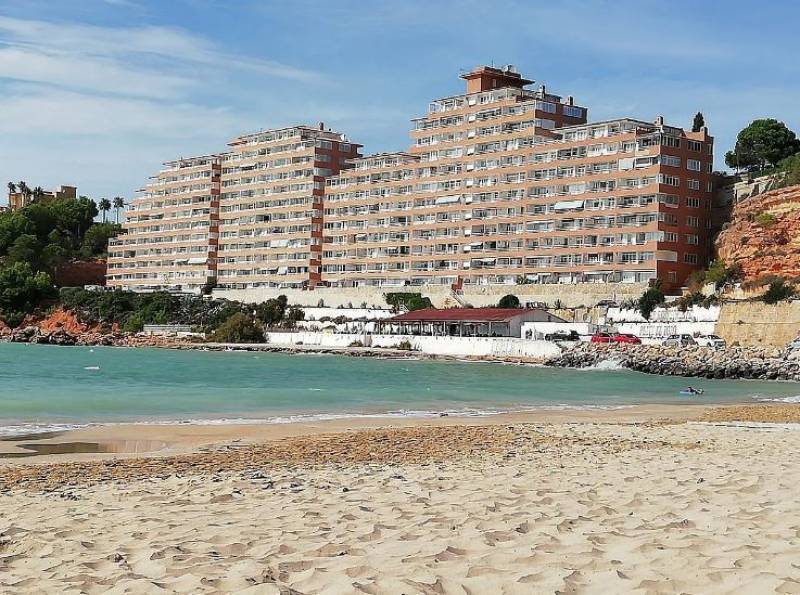
The woman has been living in the Calviá apartment illegally for more than a year, refusing to pay 15,000 euros in rent and bills, while taking advantage of the elderly couple and draining their much-needed savings.
Maria Elena Collado, 70, and José María Pérez, 77, had been counting on the rental income from their flat in the El Toro area to help supplement their pension as self-employed retirees.
The couple explains that they first rented the three-bedroom property to the British woman, her Irish partner, and two children a couple of years ago, agreeing on a monthly rent of 900 euros plus utilities. All was fine initially but when the man moved out more than a year ago, all payments ceased without any notice.
When both a lawyer and Calviá Town Hall told the victims it would be extremely difficult to evict the “vulnerable” squatter, Mr Pérez said he felt like their property has been stolen from them.
“We have worked very hard all our lives to be able to enjoy our retirement, but since we cannot collect the rent and we have to pay all the bills, we cannot enjoy our retirement. The hardest thing is that the squatter laughs at us and we can’t approach her because our lawyer has told us not to or we could have legal problems,” said José María.
This situation highlights a broader issue in Spain, where squatters are often protected by housing law, making it difficult for property owners to regain control of their homes.
As José María Pérez pointed out, “It is very unfair, who are the vulnerable ones?”
Alicante
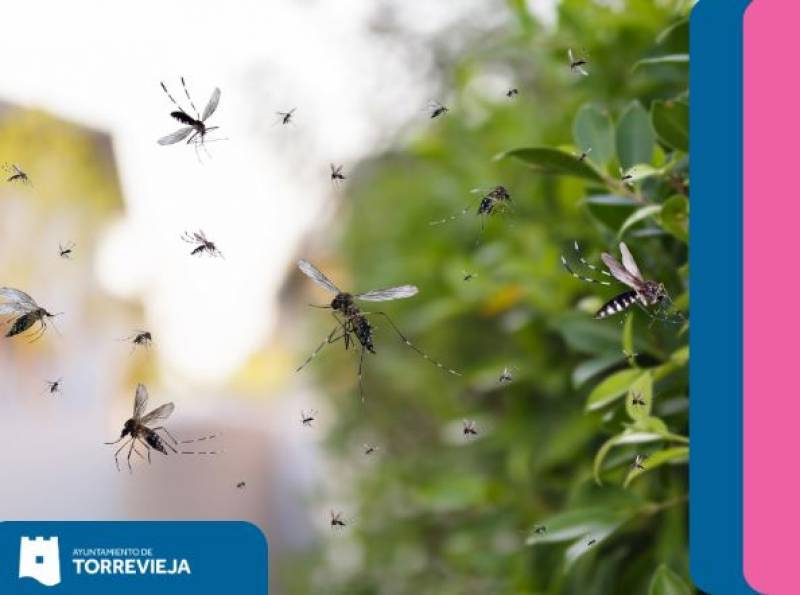
Torrevieja is taking its battle against mosquitoes to new heights – literally. Determined to safeguard its residents and visitors from the relentless pest that is the mosquito, the City Council has unveiled an ambitious and tech-savvy plan to reclaim the city’s comfort from this buzzing menace.
The city’s secret weapon?
A fleet of cutting-edge drones. These high-tech marvels will patrol hard-to-reach areas like salt marshes and abandoned pools, where mosquitoes love to breed.
Back on the ground, an impressive fleet of vehicles including quads, pick-up trucks and a specially equipped larvicide vehicle will bring the fight to mosquito breeding grounds. Armed with the latest pest control technology, these vehicles ensure no corner of Torrevieja is left untreated.
Beyond technology, Torrevieja is enlisting the help of nature’s most efficient mosquito predators: bats. The city is installing bat nest boxes to attract these nocturnal heroes, which can devour thousands of mosquitoes each night.
Meanwhile, birds of prey will be encouraged to settle in the area to help manage rodent populations, and bird species adept at feeding on the processionary caterpillar, a serious threat to pets, will also be invited to join the ecological defence force.
Special attention is being given to the invasive tiger mosquito, whose rapid spread has raised health concerns across throughout Alicante. Pest control teams will monitor specific hotspots, collecting specimens to send to health authorities for testing diseases like West Nile fever.
The suspect, who was the target of a European Arrest Warrant (EAW) issued by the Prague District Court, was caught off guard while casually taking out his rubbish.
The operation began on November 5, when a routine patrol in Pilar de la Horadada noticed an unusual car cruising through a residential area of Orihuela Costa. The vehicle, a right-hand drive car with Spanish plates, immediately caught their attention. Running the license plate through police databases, they found the car wasn’t stolen, but the name of the registered owner raised red flags.
It turned out the vehicle belonged to the Irishman, wanted under an EAW issued in September. The warrant accused him of being part of a sprawling international crime syndicate that spanned continents, including operations in the Czech Republic, Spain, the US, Ireland, the UK and Australia.
He was promptly arrested while putting out the rubbish the next day. He now faces serious charges, including drug trafficking and membership in an organised criminal group.
Cruise tourism on the Costa Blanca is riding a wave of success, with the Port of Alicante set to welcome 100 cruise ships carrying more than 230,000 passengers by the end of 2024. This influx is expected to inject around 60 million euros into Alicante’s economy, marking a significant boost for the provincial capital.
These figures were spotlighted during the VII Conference of the Alicante Costa Blanca Tourism and Cruises Association, held last week in Orihuela. The choice of Orihuela as the host city was no accident – it reflects the city’s ambitions to tap into the booming cruise market in Alicante.
Councillor for Tourism Gonzalo Montoya emphasised Orihuela’s appeal, touting its rich heritage, world-class golf courses, shopping, luxury hotels and fine dining.
Although it might seem like a stretch for cruise tourists – many of whom only dock in Alicante for a day or two – to travel all the way to Orihuela, those involved have actually been promoting inland destinations to passengers for years, and at the moment around 15 other provinces are benefitting from this kind of marketing.
Hot on the heels of last week’s vibrant patron saint celebrations and the legendary November 14 fancy dress party, where more than 30,000 revellers turned the streets into a kaleidoscope of outrageous costumes, Benidorm is gearing up for another grand event.
This Saturday November 23, the city will host the
Benidorm Half Marathon, welcoming an impressive 6,500 participants.

This year’s race has drawn runners from 26 countries, showcasing Benidorm’s global appeal. Leading the international turnout are athletes from the UK, making up a remarkable 43% of participants (around 2,790 runners). Other countries represented include Norway (73 participants), Belgium (62), Ireland (32) and Italy (27), with runners also travelling from as far afield as Poland, Sweden, and the Netherlands.
Celebrating its 40th edition, the Benidorm Half offers two race options: the gruelling 21-kilometre half marathon and a more approachable 10k. This year, participants are nearly evenly divided between the two events.
In terms of the Spanish turnout, 46 of the country’s 52 provinces will be represented at the Benidorm Half 2024. Unsurprisingly, the largest number of athletes hail from Alicante (1,469 runners), followed by Valencia with 417 and Madrid with 314. In addition, there will be 274 from Albacete, 180 from Murcia, 128 from Toledo, 97 from Cuenca, 68 from Ciudad Real, 59 from Castellón and 38 from Guadalajara.
Andalucía
Our Andalucía section this week starts in Sussex (UK), where
police have offered a £10,000 reward for any tidbit of information about Daniel and Liam Poole, a father and son duo who vanished into thin air during a 2019 holiday to Estepona.
Originally thought to be house-hunting, their trip now appears to have taken a darker turn, with whispers of a botched drug deal and a full-blown murder investigation. Their abandoned hire car, still-packed suitcases and missing passports all point towards something very dark that went on 5 years ago when the pair disappeared.
Detective Chief Inspector Simon Dunn seems to agree, urging anyone with answers to come forward while the family holds out hope – albeit dwindling – that their loved ones might yet be found alive and well.
There were no visible signs of foul play, but the strangeness of the scene has left locals wondering whether something more sinister might be at work. Local authorities, now left to untangle this nautical enigma, have launched an investigation and are awaiting autopsy results to determine if this was a tragic accident or something with more layers.
Dubbed the “balcony overlooking the city,” the free-to-visit mirador promises breathtaking vistas, newly walkable paths and over 400 lights to make it all Instagram-ready. The project has been sold as a modern marvel that melds history with contemporary design.
Whether it’s worth the price tag is another matter, but if it brings more tourists to Almería – which was one of the few places in southern Spain to actually see a drop in tourist numbers this summer – then it can only be a good thing.
In Teesside, the good folk of Darlington can now look forward to direct flights to Málaga, courtesy of Ryanair, while Almería Airport is particularly thrilled, with an easyJet connection to London Luton joining the roster for summer 2025, along with the recently announced flights to Budapest.
Contrast this with what’s going on at Murcia Airport and you may wonder if it’s worth flying into and out of Almería next year. If only the connections on the ground from Almería to Murcia were any good…
You may have missed…
- The world’s best cheese comes from Murcia this year.
A blue cheese made by the Queseria Roano cheese factory in Lorca has received the award for one of the best cheeses in the world at the World Cheese Awards 2024.
- Spain prepares civil protection ‘war risk’ guide as international tensions grow.
As international tensions escalate and Russia’s threats towards Europe and the US are being taken more and more seriously, Spain is developing its first-ever guide to help citizens respond to the risks associated with potential war.
- Two more Iberian Lynxes have been released in the highlands of Lorca.
Damán and Nota are the names of the two Iberian Lynxes that have been released in the highlands of Lorca this week. Their release marks the latest effort in the programme to strengthen and stabilise the habitat of these beautiful cats, though several lynxes this year have succumbed to fatal traffic accidents.
- Los Alcázares is already on the hunt for lifeguards for 2025.
The Mar Menor town of Los Alcázares is already searching for lifeguards for its beaches for summer 2025 with a contract worth almost 700,000 euros.
- Tickets are now on sale to watch Spain’s national women’s team take on South Korea in Cartagena.
Tickets are now on sale to watch Spain’s national women’s team play against South Korea in Cartagena in the last international friendly of the year, to be played on Friday November 29.
That’s the end of this week’s bulletin. Thank you for reading and see you next week.
Have a good weekend!
article_detail

|



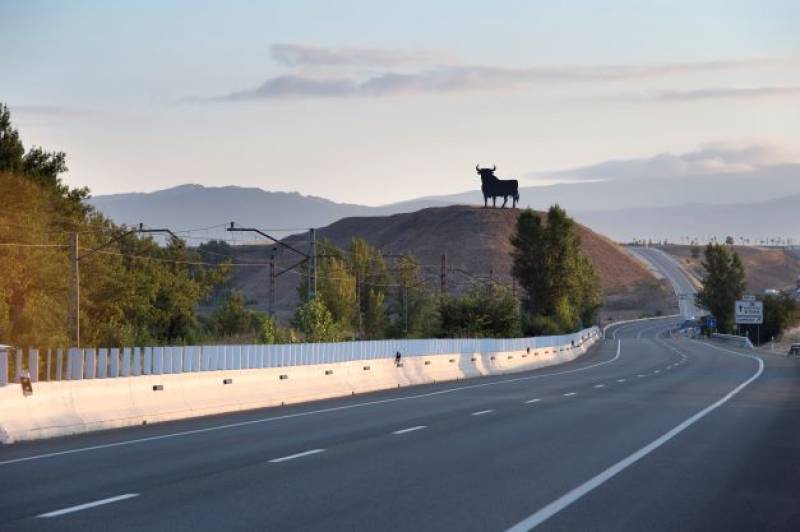
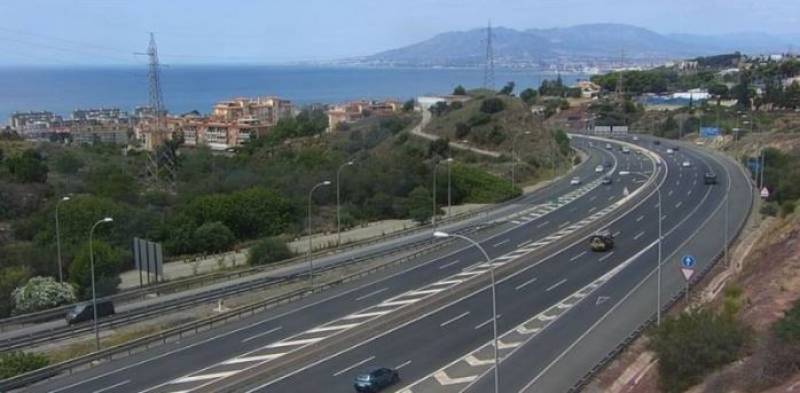
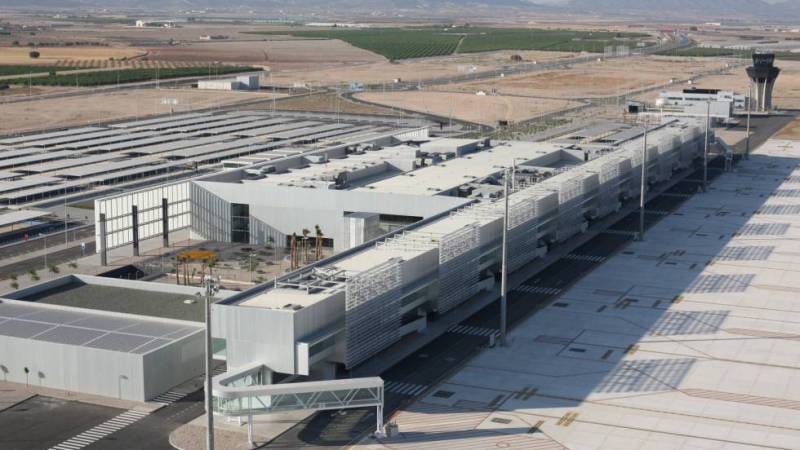
 The boat, with its four high-powered engines, is suspected to be linked to drug trafficking. The 4x4 that was towing it sped away from the scene of the crime, and the Guardia Civil are now trying to hunt it down using supermarket receipts found aboard the boat.
The boat, with its four high-powered engines, is suspected to be linked to drug trafficking. The 4x4 that was towing it sped away from the scene of the crime, and the Guardia Civil are now trying to hunt it down using supermarket receipts found aboard the boat.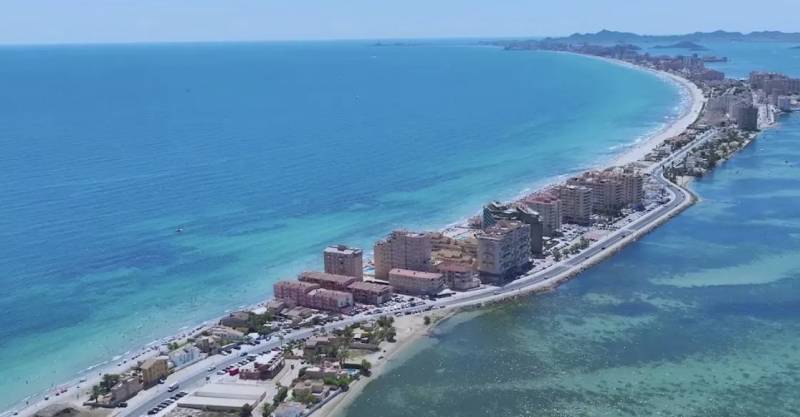
 If you’ve got old wedding footage, embarrassing 90s dance moves or a grainy recording of your child’s first steps sitting around somewhere on a VHS tape, you can actually get those transferred to digital with Murcia-based and expat-run company Fixtech, so you can watch it on the computer. The same can be done with cassette tapes, so you can rescue those old romantic mixtapes from the dustbin of history.
If you’ve got old wedding footage, embarrassing 90s dance moves or a grainy recording of your child’s first steps sitting around somewhere on a VHS tape, you can actually get those transferred to digital with Murcia-based and expat-run company Fixtech, so you can watch it on the computer. The same can be done with cassette tapes, so you can rescue those old romantic mixtapes from the dustbin of history.
 The woman has been living in the Calviá apartment illegally for more than a year, refusing to pay 15,000 euros in rent and bills, while taking advantage of the elderly couple and draining their much-needed savings.
The woman has been living in the Calviá apartment illegally for more than a year, refusing to pay 15,000 euros in rent and bills, while taking advantage of the elderly couple and draining their much-needed savings. Torrevieja is taking its battle against mosquitoes to new heights – literally. Determined to safeguard its residents and visitors from the relentless pest that is the mosquito, the City Council has unveiled an ambitious and tech-savvy plan to reclaim the city’s comfort from this buzzing menace.
Torrevieja is taking its battle against mosquitoes to new heights – literally. Determined to safeguard its residents and visitors from the relentless pest that is the mosquito, the City Council has unveiled an ambitious and tech-savvy plan to reclaim the city’s comfort from this buzzing menace. This year’s race has drawn runners from 26 countries, showcasing Benidorm’s global appeal. Leading the international turnout are athletes from the UK, making up a remarkable 43% of participants (around 2,790 runners). Other countries represented include Norway (73 participants), Belgium (62), Ireland (32) and Italy (27), with runners also travelling from as far afield as Poland, Sweden, and the Netherlands.
This year’s race has drawn runners from 26 countries, showcasing Benidorm’s global appeal. Leading the international turnout are athletes from the UK, making up a remarkable 43% of participants (around 2,790 runners). Other countries represented include Norway (73 participants), Belgium (62), Ireland (32) and Italy (27), with runners also travelling from as far afield as Poland, Sweden, and the Netherlands.
